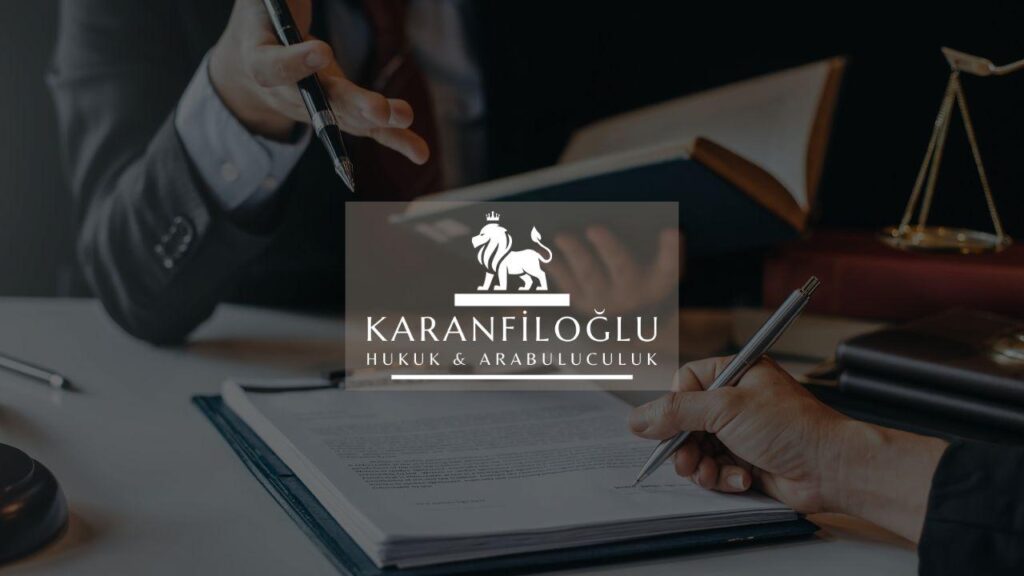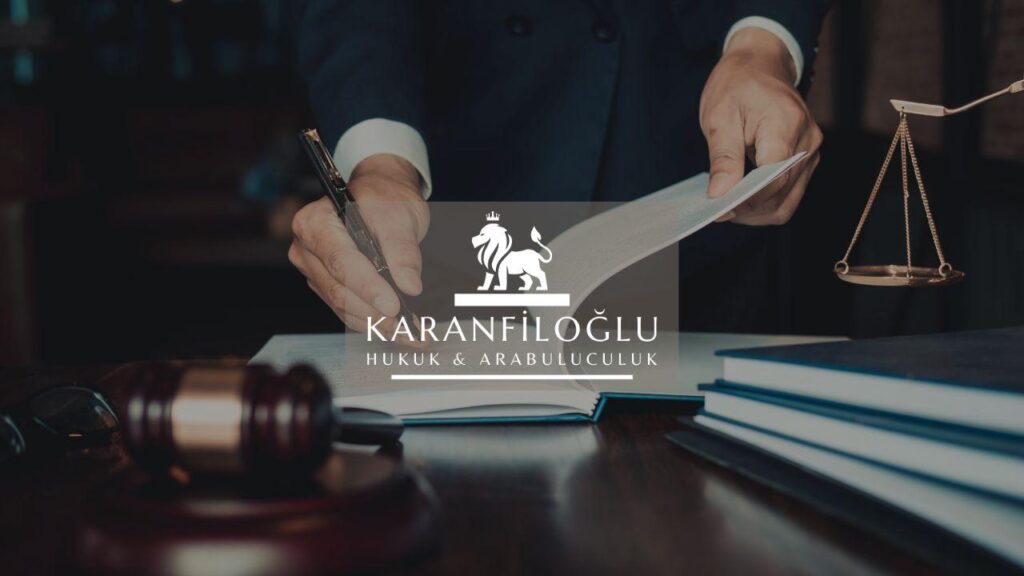Navigating the intricate landscape of employment law in Turkey requires a comprehensive understanding of both the rights and responsibilities that govern the relationship between employers and employees. At Karanfiloglu Law Office, we are committed to providing our clients with clear guidance and expert legal support in this crucial area. This article will delve into the fundamental aspects of Turkish employment law, presenting essential information for both employers striving to comply with legal obligations and employees seeking to understand their entitlements. Whether you are an employer aiming to foster a compliant and productive workplace or an employee wishing to safeguard your statutory rights, this overview will serve as a valuable resource in ensuring a balanced and lawful employment relationship.
Contractual Obligations and Employee Protections
Under Turkish employment law, the contractual obligations of employers and employees play a pivotal role in shaping a fair and compliant workplace environment. Employers are required to provide employees with written employment contracts that clearly outline the terms and conditions of their employment, including job description, working hours, wages, and duration of the contract. These contracts serve as the primary legal document governing the employment relationship and must adhere to regulations set forth by the Turkish Labor Code. Employees, on the other hand, are entitled to a range of protections, including the right to fair remuneration, safe working conditions, and non-discriminatory treatment. The Labor Code also enforces strict regulations regarding termination, ensuring that any dismissals are based on just causes and comply with legal notice periods and severance pay requirements. By understanding these contractual obligations and protections, both employers and employees can foster a more transparent and equitable working environment.
Important employee protections under Turkish employment law include provisions for leave and working hours. Employees are entitled to annual paid leave, which varies according to their length of service, starting at a minimum of 14 days for employees with less than five years of service and increasing with tenure. Maternity leave, paternity leave, and leave for certain personal events are also mandated by law. Additionally, the regulations stipulate standard working hours, typically set at a maximum of 45 hours per week, with overtime compensation required for any additional hours worked. Employers must also adhere to rules on rest breaks and weekly rest days, ensuring employees have adequate time off to recuperate. These statutory rights are designed to promote employee welfare and work-life balance, while non-compliance can lead to legal penalties and disputes.
Another key aspect of Turkish employment law focuses on the protection of employees against unfair treatment and the enforcement of equality in the workplace. Anti-discrimination regulations prohibit any form of discrimination based on race, gender, age, religion, disability, or other personal characteristics, ensuring that all employees have equal opportunities and are treated fairly throughout their employment. Additionally, regulations have been established to prevent workplace harassment and bullying, obligating employers to take necessary measures to eliminate such behavior and provide a safe and respectful working environment. Employees who believe their rights have been violated can seek legal recourse through mediation processes or labor courts. Turkish employment law provides a robust framework for addressing grievances, thereby fostering a work culture grounded in respect and fairness. At Karanfiloglu Law Office, we stand ready to assist both employers and employees in navigating these complex legal landscapes to ensure compliance and protection.
Legal Recourse for Employment Disputes
In Turkey, both employers and employees have the legal recourse to resolve employment-related disputes through various mechanisms. The primary step for many involves the mandatory mediation process, which aims to facilitate a mutually agreeable solution before court proceedings become necessary. Should mediation prove unsuccessful, parties can take their case to specialized labor courts that handle disputes such as wrongful termination, unpaid wages, and breaches of contract. Furthermore, employers and employees can seek guidance and file complaints with the Ministry of Family, Labor and Social Services for regulatory breaches. At Karanfiloglu Law Office, we provide comprehensive support throughout these processes, ensuring that our clients’ rights and responsibilities are thoroughly represented and upheld.
It is important to note that timelines and procedures play a crucial role in Turkish employment law disputes. Employees must file their claims, such as for wrongful termination or unpaid wages, within specific time frames to ensure their cases are heard. For instance, wrongful termination claims typically need to be filed within one month of the termination date. Understanding these deadlines is essential as failure to adhere to them may result in the forfeiture of legal rights. Employers, on the other hand, are required to provide proper documentation and evidence during the dispute resolution process to defend against claims accurately. At Karanfiloglu Law Office, we emphasize the importance of procedural compliance and timely action, guiding our clients meticulously through filing deadlines and documentation requirements to maximize the chances of a favorable outcome.
In addition to formal legal channels, alternative dispute resolution (ADR) methods, such as arbitration, offer another pathway for resolving employment conflicts in Turkey. Arbitration can be particularly advantageous for parties seeking a private and faster resolution. Unlike labor courts, where proceedings are public and can be prolonged, arbitration provides a more confidential and streamlined process. Both employers and employees can agree to settle their disputes through an arbitrator whose decision is binding and enforceable. It’s crucial for both parties to have a well-drafted arbitration agreement to ensure clarity and enforceability. At Karanfiloglu Law Office, we assist our clients in drafting, reviewing, and executing effective arbitration agreements, providing expert advice to ensure that their interests are protected and that the resolution process is as smooth and efficient as possible.
Compliance Requirements and Best Practices for Employers
Employers in Turkey must navigate an array of compliance requirements to align with the country’s labor laws, ensuring fair and lawful treatment of their workforce. Key obligations include drafting comprehensive employment contracts in accordance with the Turkish Labor Code, maintaining proper records of working hours, wages, and ensuring timely payment. Furthermore, employers are mandated to implement workplace health and safety measures, provide necessary training, and comply with regulations regarding overtime and leave entitlements. Adopting best practices such as regular audits, staying updated with legal amendments, and fostering an open communication channel with employees can significantly enhance compliance and reduce the risk of disputes. At Karanfiloglu Law Office, we offer expert assistance to help employers navigate these complexities and establish a legally compliant and harmonious workplace.
Another critical aspect for employers is to address discrimination and harassment within the workplace proactively. Turkish employment law mandates that employers must create an environment free from any form of discrimination based on race, gender, religion, age, or disability. Implementing comprehensive anti-discrimination policies and training programs can help mitigate risks and promote an inclusive work culture. Employers are also required to establish clear procedures for reporting and addressing grievances related to harassment, ensuring that all complaints are handled confidentially and impartially. Failure to tackle these issues not only leads to legal consequences but also adversely affects workplace morale and productivity. With the guidance of Karanfiloglu Law Office, employers can develop robust policies and practices to prevent discrimination and harassment, thus fostering a respectful and legally compliant workplace environment.
Maintaining precise and compliant records is another significant responsibility for employers under Turkish employment law. Accurate record-keeping of employment contracts, payroll data, leave balances, and disciplinary actions is crucial not only for internal management but also for meeting legal requirements and audits by labor inspectors. Employers must ensure that all information is up-to-date and stored securely to protect employee privacy. Regularly reviewing and updating these records can help avoid potential disputes and penalties. Additionally, employers are advised to stay informed about changes in legislation and adjust their record-keeping practices accordingly. At Karanfiloglu Law Office, we provide tailored solutions to assist employers in establishing efficient record management systems, thereby ensuring compliance and smooth operational processes.
Disclaimer: This article is for general informational purposes only and you are strongly advised to consult a legal professional to evaluate your personal situation. No liability is accepted that may arise from the use of the information in this article.







